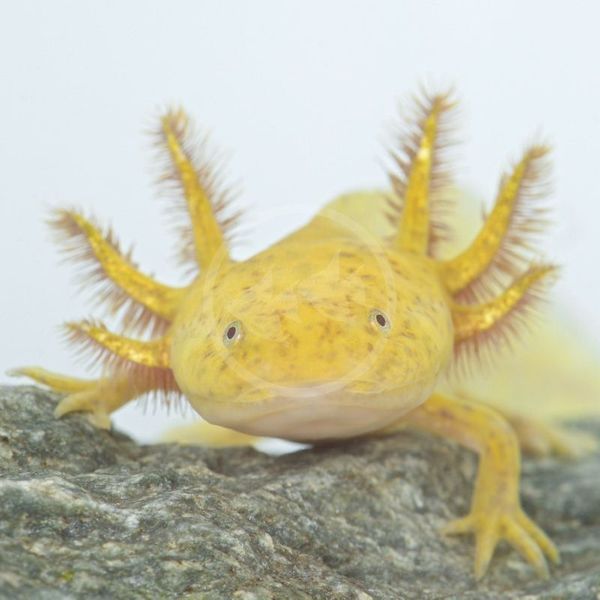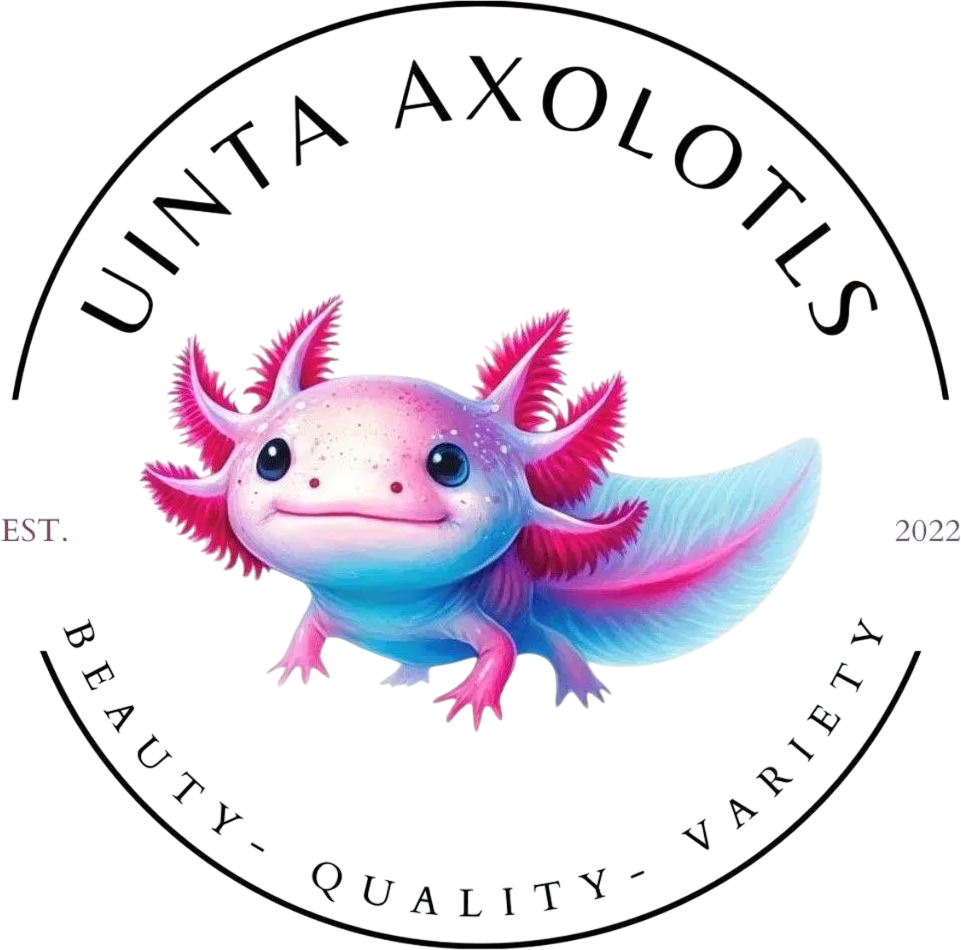Axolotl Care
How to Take Care of Your Axolotl
As a proud owner of an axolotl, it is crucial to understand the proper care and maintenance needed to keep your pet healthy and happy. At Uinta Axolotls in West Haven, UT, we are dedicated to providing you with the information and resources necessary to ensure your axolotl receives the best care. We're here to support you every step of the way. Contact us at (805) 312-0476 or
(805) 312-2504, or email us at uintaaxolotls@gmail.com to learn more about axolotl care.
Feeding Your Axolotl
Proper nutrition is vital to your axolotl's health and longevity. Axolotls are carnivorous and require a diet of high-quality pellets, worms, and live or frozen brine shrimp. Avoid feeding your axolotl insects or other invertebrates, as they can harm their digestive system.
🐾 Axolotl Feeding & Nutrition
Axolotls are obligate carnivores that thrive on a protein-rich diet. Ideal foods include live or frozen options such as earthworms, blackworms, bloodworms, soft salmon pellets, and fresh, deveined seafood. Young axolotls (less than 4″ long) should be fed once or twice daily, while larger juveniles and adults can be fed every other day. Since they have limited vision, it’s best to feed them with tongs—this helps ensure they don’t miss their meal.
Tank Set-Up
Axolotls require a large tank with plenty of space to swim and explore. A 20-gallon tank is the minimum size recommended for one adult axolotl. The tank should have a filter to ensure clean water and a temperature between 65-70°F. Avoid using gravel substrate, which can be ingested and cause digestive problems.
Tank Setup & Decor Essentials
Creating a Comfortable Habitat
A well-equipped tank is essential. Provide at least one hiding spot per axolotl—naturalistic caves, PVC tubes, or ornaments without sharp edges work great. For substrate, use fine sand or keep the bottom bare to avoid impaction hazards. Live aquatic plants are a plus—they not only look natural but also help improve water quality by absorbing nitrates.
Water Quality
Maintaining proper water quality is essential for your axolotl's health. Regular water changes of 10-20% weekly will help keep ammonia and nitrate levels low. Use a water conditioner to remove any harmful chemicals or toxins from tap water.
Compatible Tank Mates
While axolotls may accept certain peaceful fish and invertebrates, any tank mates must be chosen carefully. Suitable companions include ghost shrimp, mystery or trapdoor snails, dojo loaches of similar size, zebrafish-type species (e.g., danios), and other axolotls that are well-fed. However, caution is key—some shrimp and fish might eventually become a snack.
Handling Your Axolotl
Axolotls are sensitive creatures and should be handled with care. Always wet your hands before handling your axolotl to avoid damaging their delicate skin. Avoid picking them up by their tails, as it can cause injury. Instead, gently scoop them up from underneath their bellies.
We're Here to Help You Care for Your Axolotl
For more information on how to care for your axolotl, reach out to Uinta Axolotls at (805) 312-0476 or
(805) 312-2504. We are dedicated to providing you with the resources you need to properly care for your axolotl.
Contact us today for any guidance or support you may need.


